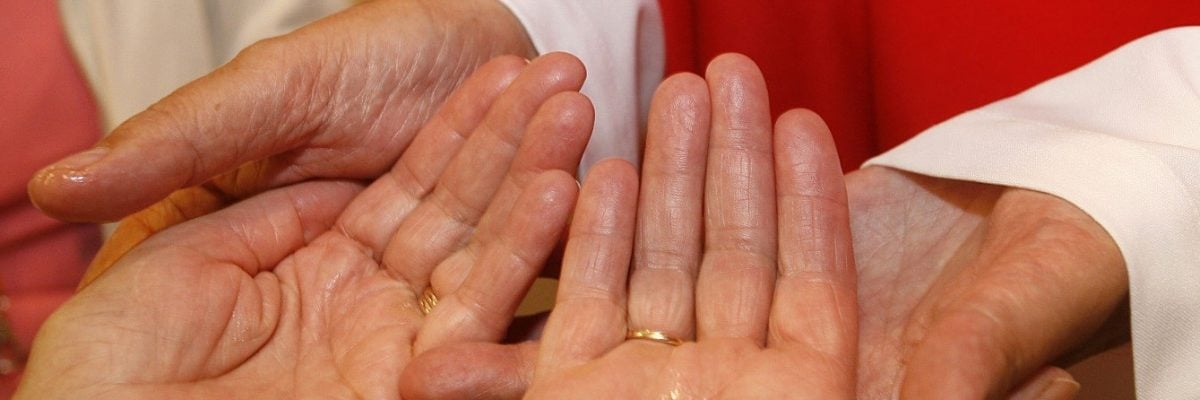
Question:
Answer:
This is a great question! The fact is that anyone who is baptized and of the age where he can go to confession is able to receive the sacrament of the anointing of the sick validly.
However, the discipline of the Roman rite Church restricts the reception of this sacrament to those who on account of age or infirmity are in some grave danger. They do not have to be dying, but their condition should be supposed serious. In the Byzantine rite of the Catholic Church, everyone is allowed to receive this sacrament once a year on Holy Wednesday of Holy Week. The tendency in the Roman rite nowadays is to be rather permissive in giving this sacrament, as one can see with the various Masses that are celebrated for the sick generally. Everyone is allowed to come forward who wants to, and there is no questioning of whether persons are seriously ill or not.
The fact is that the effect of the anointing of the sick is precisely the removal of the remains of sin (the fomes, or “kindling” ) in the soul in view of death and judgment, so it is a kind of “confirmation” complementing the sacrament of penance that removes sin itself. This sacrament is a kind of strengthening of the effects of sacramental confession, as confirmation strengthens the effect of baptism.
So, I think the practical solution is to seek this sacrament according to your best judgment when you attend a general Mass for the communal anointing of the sick but to limit requests for an individual appointment for times of obvious serious illness. You can also visit a Byzantine Catholic church on Holy Wednesday each year, which would be an enriching experience.



